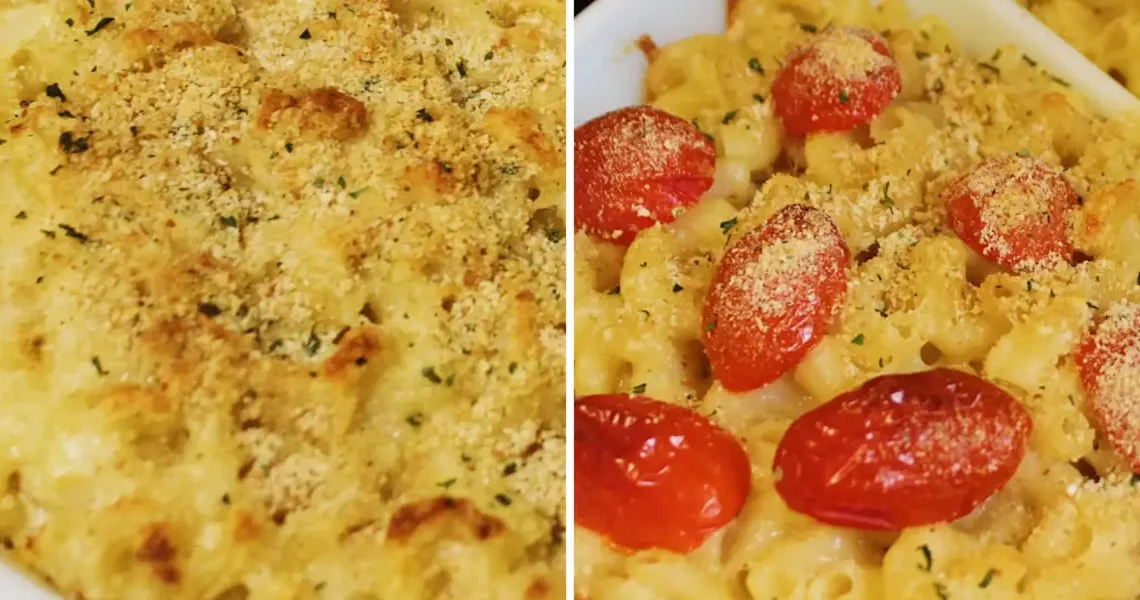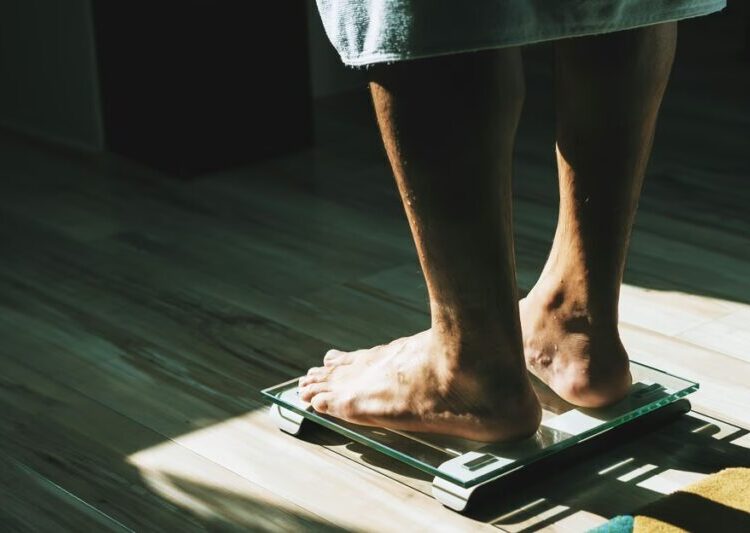Thanksgiving is around the corner, and a gooey dish of baked mac and cheese could be just the thing to impress your guests.
Both Martha Stewart and Ina Garten have recipes for baked mac and cheese, so I decided to see which is worthy of gracing your Thanksgiving table. While the recipes were similar, one was a little cheaper and packed a lot more flavor.
Beyond the chefs’ baked mac and cheese recipes, they have other recipes perfect for Thanksgiving, including Garten’s overnight mac and cheese, cornbread, and stuffing.
Here’s how to make Garten and Stewart’s recipes for baked mac and cheese, and which one is better.
Up first was Martha Stewart’s creamy mac and cheese.
Although Martha Stewart’s and Ina Garten’s recipes are similar, the biggest difference between them is that Stewart calls for four different kinds of cheese and adds sautéed onion to the dish.
You can find the full recipe here.
I started by melting a few tablespoons of unsalted butter in a pot on the stove.
I chose a midsize pot to make the cheese sauce in.
While the butter was melting, I chopped some yellow onion.
The recipe calls for ¼ cup of diced yellow onion.
After the butter had melted, I added the yellow onion to the pot and gave it a stir. The smell of butter and onions quickly filled my kitchen.
The recipe says to sauté the onions until they become translucent, which should take about five minutes.
While the onions were cooking, I set about the somewhat grueling task of grating all the cheeses.
It took considerable effort to hand-grate the cheeses. It was also difficult to measure out each cheese exactly, so I ended up guestimating somewhat.
However, in the end, I had the right amount of each cheese to make the sauce, plus some cheese left over to sprinkle on top of the mac and cheese before baking it in the oven.
Next, I cooked the macaroni noodles.
It took about five minutes to cook the noodles, as they’re supposed to be a little undercooked before going in the oven.
After the onions had become translucent, I added the flour.
It quickly thickened the onions and butter mixture. Per the recipe’s instructions, I stirred the onions, flour, and butter together and left it for a few seconds until the mixture began to bubble in the pot.
I then added 3 cups of whole milk. The mixture was now starting to resemble a cheese sauce.
After a few minutes, the mixture had begun to thicken.
To finish the sauce, I added the four types of cheese — fontina, Gruyère, cheddar, and Parmigiano-Reggiano — and seasonings.
After stirring the cheese sauce until all the ingredients were completely melted and combined, it was time to add it to the macaroni.
By the time I poured the noodles into the larger pot and added the cheese sauce, I had been prepping and cooking for about an hour.
However, the steps were easy to follow, and I was able to sit down once the mac and cheese was ready to be put in the oven.
You can make the mac and cheese in individual pans or in a larger 1 1/2-quart baking dish.
After scooping my mac and cheese out of the pot and into the dish, I realized I had a lot left over. I could have easily filled another dish.
I then topped my mixture with breadcrumbs.
You can use homemade breadcrumbs per the instructions from the slow-cooker version, or you can use store-bought in a pinch.
I didn’t have a food processor available to make homemade breadcrumbs, but I found that the store-bought kind didn’t negatively affect my end result. I was happy to cut out a step and save myself some dishes.
After 30 minutes in the oven, my mac and cheese was done, and it was delicious.
The top layer of mac and cheese had a delicious, lightly browned crust, while the mac and cheese underneath remained perfectly creamy. It was enough to feed about four people, though I could have fed more if I had more dishes to bake the rest of the leftover macaroni.
This mac and cheese was really flavorful, with a slightly smoky taste.
Ina Garten’s recipe for baked mac and cheese calls for fewer ingredients.
The recipe only uses two types of cheese — extra-sharp cheddar and Gruyere — making this recipe a little less time-consuming and expensive to make. Perhaps to make up for less cheese, the recipe uses more butter and milk than Martha Stewart’s version.
You can find the full recipe here.
The recipe calls for a whopping 8 tablespoons of unsalted butter.
Two tablespoons are reserved for the end, so you start by melting 6 tablespoons in a pot on the stove. It’s important to melt it at a low heat — you don’t want the butter to burn or boil.
While the butter was melting, I started boiling the pasta.
The recipe calls for a pound of macaroni or cavatappi pasta. The chef also recommends adding oil to the pot of boiling water, which prevents the pasta from sticking.
While this recipe does call for fewer ingredients, it does require an extra pot.
After the butter had melted, I added ½ cup of all-purpose flour. The key is to whisk the mixture until it is smooth and has no clumps.
Meanwhile, in a separate pot, I began heating a quart of milk.
I then added the hot milk to the flour and butter mixture.
The next step was to whisk the ingredients until they were fully combined.
While the mixture was off the heat, I started grating my extra-sharp white cheddar cheese. The recipe calls for 8 ounces, which turned out to be the entire package. It took a while to grate, so I was thankful that I had bought pre-grated Gruyére cheese.
After adding the two kinds of cheese, my sauce began to thicken.
I seasoned the pot of cheese sauce with nutmeg, salt, and pepper. Ina Garten’s recipe uses similar seasonings to Stewart’s, except for the addition of cayenne pepper, which Stewart does not use.
Garten recommends boiling the noodles fully before putting them in the oven, rather than leaving them slightly al dente.
This was another slight difference between the two recipes.
After my noodles were cooked, I poured the cheese sauce over them and mixed everything with a wooden spoon.
The cheese sauce in the Garten recipe was slightly thicker and had a distinct cheese pull.
I scooped the mixture into a baking dish and waited for the oven to finish pre-heating to 375 degrees Fahrenheit.
Garten recommends topping the mac and cheese with breadcrumbs and tomato slices before putting it in the oven.
I made one side of my dish with tomatoes and one without, so I could see which one I preferred.
The recipe calls for homemade breadcrumbs, but I opted to use the same store-bought ones I used in the Martha Stewart version for the sake of a fair comparison.
After about half an hour, the mac and cheese was bubbling and browned on the top. The dish smelled heavenly.
The tomatoes were slightly roasted.
I thought the tomatoes took this mac and cheese dish to the next level, but the Martha Stewart recipe was much cheesier.
The Ina Garten version tasted like an adult-friendly version of a childhood favorite, while the Martha Stewart version was more classic.
The tomatoes added tart flavor to the dish and a unique texture, but I was torn over which I preferred.
Both recipes have their high points, but I couldn’t ignore the fact that Ina Garten’s recipe was cheaper, as I only needed two kinds of cheese. It was also dramatically easier to make. With the Stewart version, I had to prep onions and grate four kinds of cheese, for not that much more flavor in the end.
If I were to choose which one to make again, I would opt for the Ina Garten mac and cheese recipe. I enjoyed the addition of the tomatoes and thought they’d pair well with other Thanksgiving foods.
However, if tomatoes and stuffing don’t sound good together, you can always leave them out — the dish is still great without them.
Read the original article on Business Insider
The post I tried Martha Stewart’s and Ina Garten’s baked mac and cheese recipes, and one was perfect for Thanksgiving appeared first on Business Insider.




